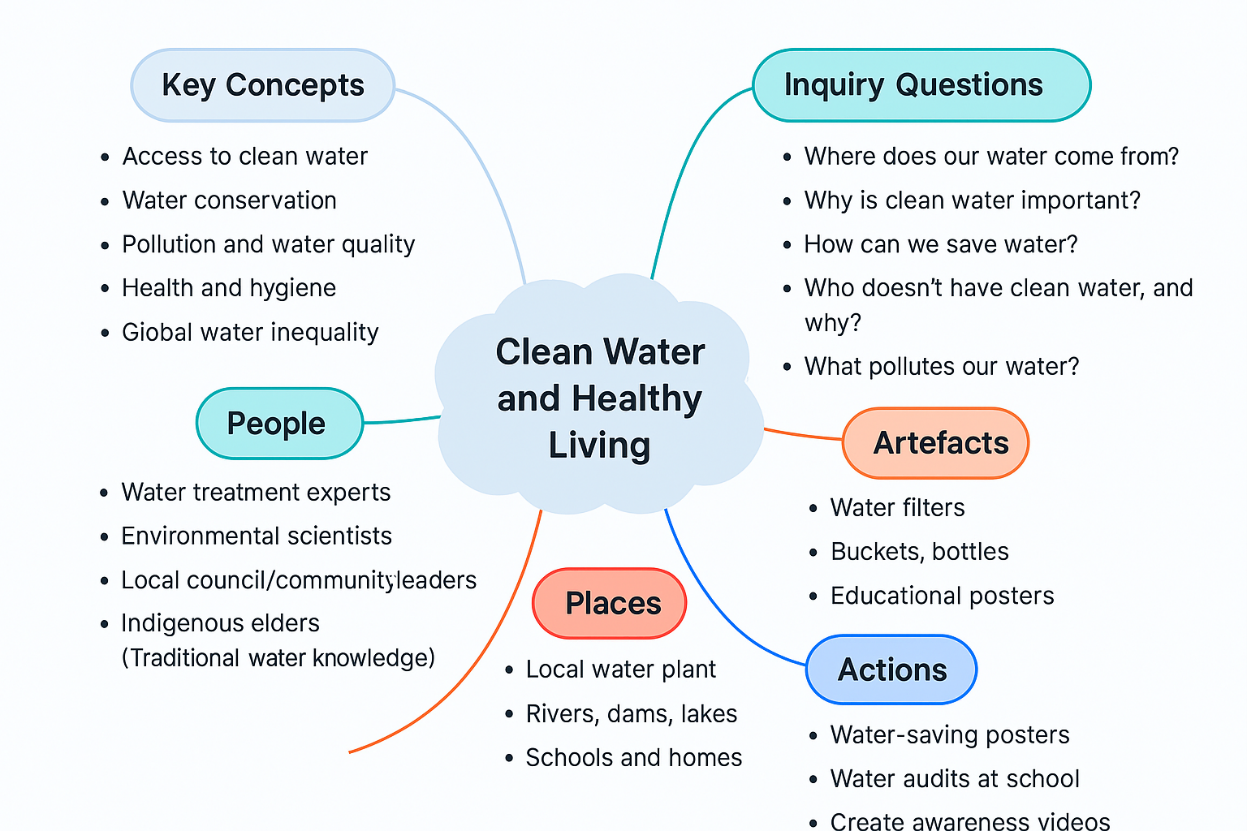The concept of having access to clean and safe water is a foundational sustainability issue that connects health, equity, environment, and human rights across all these areas. It is therefore a powerful ‘big idea’ for inquiry learning in primary education. While Australia as a continent is deemed water secure, there are still challenges in rural and remote communities. According to Balasooriya, Rajapakse, and Gallage (2023), approximately 30% of remote Indigenous communities in Australia experience unsafe or unreliable access to drinking water. Globally, the World Health Organisation (2023) estimates that over 2.2 billion people lack access to safely managed drinking water. These are not only environmental or technical realities but deeply social and ethical realities that lead students to engage critically with the question of justice and the distribution of resources.
I selected this topic for its pedagogical richness, accessibility, and developmental relevance to primary students. Water is a familiar, unavoidable part of a child's daily life, yet the source and treatment systems behind it often remain hidden from them. This familiarity provides a concrete entry point for engaging students in meaningful inquiry, allowing them to connect everyday experiences with wider global challenges related to water access and sustainability. Aligning with the Cross Curriculum Priority of Sustainability and with the General Capabilities of the Australian Curriculum (ACARA, 2017), it supports the development of ethical reasoning, systems thinking, and environmental responsibility. In addition, the topic supports the integration of stories of Aboriginal and Torres Strait Islander Histories and Cultures, in which water is seen as an essential part of the Country, spiritual, ecological and cultural, that is, not just a commodity. Introducing students to these perspectives fosters respect for Indigenous knowledge systems and enhances cultural understanding (Moggridge and Thompson, 2021). This is congruent with Education for Sustainable Development, which promotes collaborative and action-oriented learning to engage with socially urgent, personally relevant topics (Carrapatoso, 2021).
According to Kath Murdoch’s (2015) inquiry model, students work in a dynamic cycle in which they nurture curiosity, reflect, and become active citizens. Tuning in is the starting point for beginning the process, where students think about what they already know and how they are using water. In finding out, they probe the approaches to source and treat water. They also examine issues of access and inequality when sorting it out. Going further, the exploration of water-saving technologies and solutions can be applied. The reflecting phase allows the students to think about their personal habits, while the action phase gives them the power to affect real-world solutions, for example, awareness campaigns or school audits.
The inquiry will be guided by the following open-ended questions:
- Where does our water come from, and how is it made safe?
- Why is clean water essential for health and sustainability?
- How can we conserve water in our schools and homes?
- Who doesn’t have clean water, and why?
- What pollutes water, and how can we prevent it?
